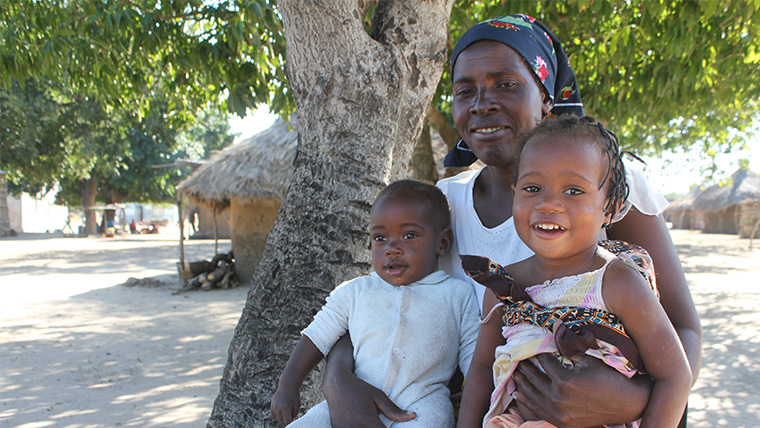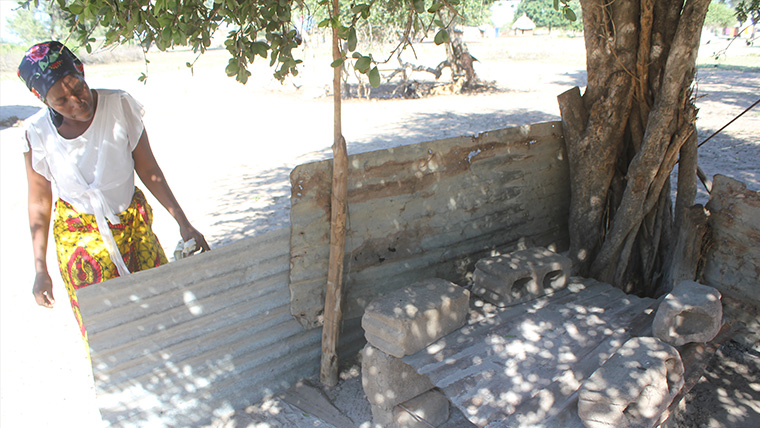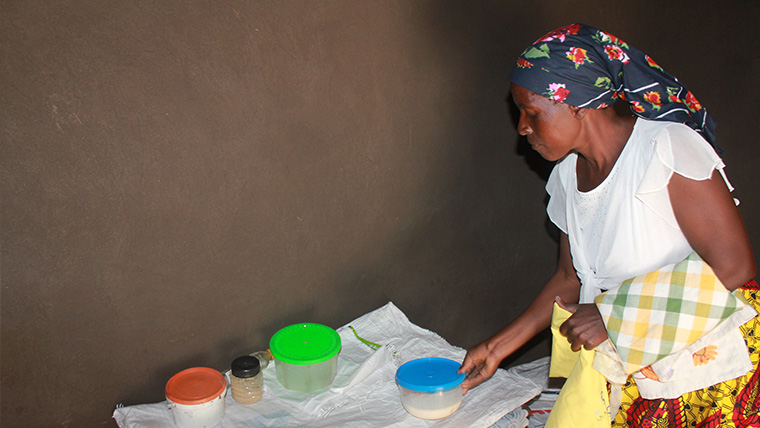Savings turning into food | Empowering women in Mozambique
A World Vision-supported savings group in Gaza province, southern Mozambique, is helping mothers like Esperança put food on the table for their children and grandchildren. The majority of parents in the region are struggling to feed their children due to the effects of a drought that has devastated crops and left a trail of hunger in its wake…

Esperança with her grandchildren - nine-month-old Antonio and four-year-old Marta
Like most people in her village, Esperança has always relied exclusively on subsistence farming for food and to provide an income for her family. However, she never felt comfortable working solely on the land - particularly in a country prone to the erratic effects of El Nino. She had an idea to begin a small bread-making business and diversify her income, but she lacked the funds to start and her village didn’t have a bank to borrow money from.
In 2012, World Vision invited her to be part of a new savings group in her village. Savings groups work like a community bank where the members meet regularly, pool funds in a common safe and borrow money to invest or start their own small businesses and return it with interest.
“My family and I were facing difficult moments, particularly now that our farms are producing next to nothing because of droughts. I started selling products such as rice, cooking oil and sugar - amongst other things,” Esperança explains. “I learned the baking process in five days. I noticed that the oven that my teacher was using to bake bread was affordable, so I made one myself at home. I borrowed money to start my business.”
“On the first day I baked about 150 loaves. Each 25 kilogram sack of wheat flour could give me a return of £5,” Esperança smiles.

Esperança shows off her homemade oven where she she can produce as many as 400 loaves of bread per day
This is a welcome change for Esperança, who has struggled to provide for her two grandchildren. The past two crop seasons she's harvested very little due to droughts caused by El-Nino.
“For a single mother, responsible for both my children and grandchildren, this business is a gateway to providing food at home. It helps educate my children but most of all it empowers women like me in the community,” said Esperança.
In a community composed of 2000 people there are only five bread-bakers, and Esperança is one of them. All of these women are members of the savings group that gave them the opportunity to start their businesses.
One person who’s thrilled with Esperança’s new baking business is her four-year-old granddaughter Marta, who always has bread to eat with her meals.
“I eat bread every time my grandmother bakes. I like it - it’s nice. I am hardly hungry because there is always bread to eat,” says Marta.

Esperança shows us some of the salt, cooking oil and wheat flour she uses to bake her bread
For Esperança, bringing the community together to support each other in times of need is important. “I hope the business will continue growing and with the money I get from it, I buy other goods and repay the money I borrowed from the savings group. It helps other women that need it and we all win,” she says.
“Thanks to the profits from this business I started keeping goats - I have nine of them. Due to the seriousness of droughts it’s important to diversify the income sources,” Esperança explains.
The latest reports from Mozambique indicate that around 1.5 million people from the south and central regions of the country are impacted by food insecurity related to El Nino. World Vision Mozambique has initiated its response programme, drilling new boreholes to help with water shortages, distributing seeds and providing training to farmers. Through our El Nino Crisis Appeal you can help us to support hundreds of thousands of children affected by El Nino across nine countries in Southern Africa»